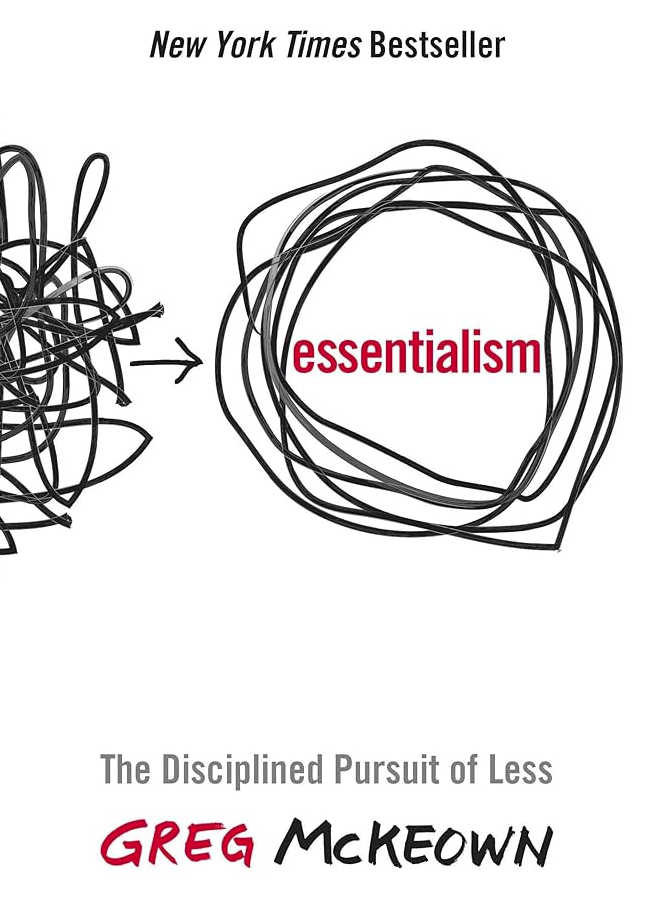Essentialism

As I write this post, I have just finished reading a book called "Essentialism" by Greg McKeown. The book is about what is essentialism and how it can make our lives a lot more meaningful and mindful. In this post, I'd like to distill key takeaways from the book and discuss my efforts to adopt an 'essentialist' mindset.

The book commences by defining the significance of essentialism in our bustling society, emphasizing its core principle—efficiently accomplishing the right tasks. Essentialism isn't a mere prescription for doing less; rather, it advocates for the strategic allocation of our time and energy. The goal is to operate at our optimum level of contribution by engaging exclusively in what is truly essential. As the narrative unfolds, it addresses common challenges, particularly those surrounding the decision-making processes.
A clear example of essentialism unfolds when faced with the challenge of turning down requests—a common struggle. Society often portrays saying 'no' as a negative act, complicating this situation. The book delves into the underlying fear of refusing requests, revealing how society tends to label such denials as 'evil' or 'mean'.
In contrast, essentialism thinks that's not always the case. Take this as an example: if friends ask for help in an area where we lack expertise, a straightforward 'no' (or a more positive 'No, but I know someone who might able to assist') is reasonable. Even though it may give the impression of not caring enough in the short term, in the long run, it serves as a way to prevent potential issues and actively contributes to helping them make better decisions, possibly saving their careers.
Essentialists make intentional and thoughtful decisions about their actions and words, allowing them to be more mindful and accountable for the outcomes. They believe that most things are non-essential, enabling them to concentrate solely on what holds the greatest significance. This approach eliminates unnecessary aspects to allow them to invest the majority of their time in what matters most.
I am currently embracing essentialism in my life and starting to make some small adjustments. I evaluate all my activities to ensure their essentiality. Take, for example, my previous habit of stockpiling books before finishing my current one, thinking it was a good practice. However, I've come to realize the value of allowing time for the insights from a book to unfold in my life before rushing into the next one. Now, I maintain a short wishlist and only make a purchase after finishing the current book and extracting the meaningful takeaways. This ensures I invest in books essential to my life, career, relationships, or anything I genuinely care about.
This approach helps me focus on what truly matters and eliminates unnecessary clutter. I'm learning to prioritize and make deliberate choices, aligning with the principles of essentialism. By doing so, I aim to optimize my time and energy for the things that contribute the most to my overall well-being and fulfillment 💆♂️
Essentialists prioritize a selected few high-impact tasks over numerous low-impact ones.
In conclusion, I've observed people excessively engrossed in trivial yet low-impactful pursuits—incessant political debates on social media, mindlessly chasing fleeting trends, indulging in consumerism without genuine value, and many other non-essential things. It once again highlights my belief in dedicating time to meaningful activities with loved ones, contributing to a purposeful life. Let's refrain from adding more clutter to this already saturated world 😊
P.S.
This post's brevity aligns with the essence of essentialism that I aim to embody in my writing—a deliberate focus on the essential to convey meaningful insights. Hope you find it valuable! ✌